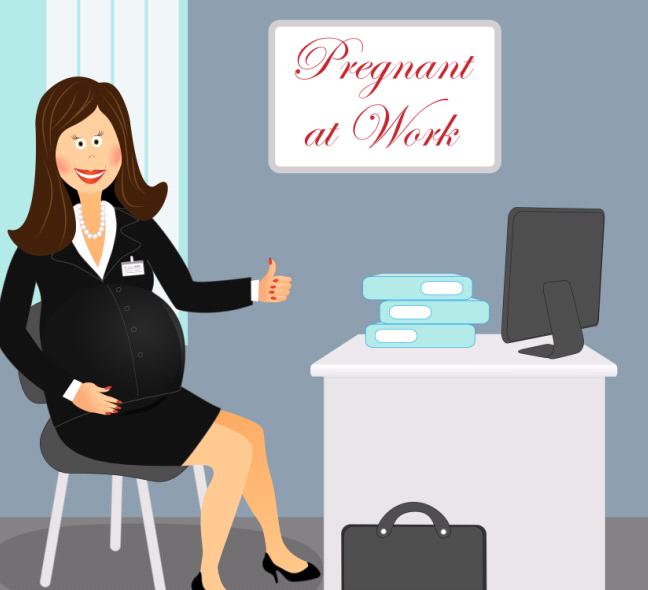Maternity leave is so incredibly important for expecting families to handle the joys and difficulties of having a baby, so it’s vital to understand how it works in New Jersey. This post covers the most important aspects of state and federal protections, income replacement options, and what to do if you encounter workplace discrimination. If you run into any challenges, speaking with a pregnancy discrimination lawyer NJ trusts can help clarify your rights.
Understanding Maternity Leave in New Jersey
New Jersey combines federal and state programs to support new parents, including job-protected leave through the Family and Medical Leave Act (FMLA) and the New Jersey Family Leave Act (NJFLA), and income replacement through Temporary Disability Insurance (TDI) and Family Leave Insurance (FLI).
Family and Medical Leave Act (FMLA)
The FMLA allows eligible employees nationwide to take up to 12 weeks of unpaid, job-protected leave each year for family or medical needs, like childbirth and bonding time.
- Work Requirements: Employees must have worked 1,250 hours in the past 12 months.
- Employer Size: FMLA applies to companies with at least 50 employees that work within a 75-mile radius.
While FMLA has a role in protecting jobs, it does not cover income, but New Jersey’s state benefits fill this gap.
New Jersey Family Leave Act (NJFLA)
NJFLA enhances leave options, providing 12 weeks of job-protected leave every 24 months to bond with a newborn or adopted child.
- Eligibility: NJFLA applies to employees with at least 1,000 hours and covers companies with 30+ employees.
- Purpose: Unlike FMLA, NJFLA applies only to bonding time and does not cover medical leave for pregnancy-related health needs.
Together, FMLA and NJFLA keep parents’ jobs secure while they bond with their child. However, they are unpaid, which is where New Jersey’s income replacement programs come in.
Financial Support During Maternity Leave in New Jersey
To address income needs, New Jersey offers Temporary Disability Insurance (TDI) and Family Leave Insurance (FLI), providing partial wage replacement for eligible employees.
Temporary Disability Insurance (TDI)
TDI provides income replacement if you can’t work due to pregnancy or childbirth:
- Purpose: TDI helps with income loss if you’re medically certified as unable to work because of pregnancy or childbirth recovery.
- Coverage: TDI generally covers up to 85% of your weekly wage, up to a certain cap. Typically, this includes four weeks before your due date and six weeks’ postpartum for a vaginal delivery or eight weeks for a C-section.
- Application: Apply through New Jersey’s Department of Labor with certification from a healthcare provider.
Family Leave Insurance (FLI)
FLI provides additional income support for bonding time:
- Purpose: FLI allows parents to take up to 12 weeks off to bond with their child.
- Coverage: Similar to TDI, FLI offers up to 85% of your weekly wage, up to a similar cap.
- Application: Start your FLI application directly after TDI benefits end to maintain continuous financial support.
Through TDI and FLI, New Jersey offers wage replacement options, reducing the financial burden on new parents. Consulting with a corporate lawyer practicing in NJ can shed more insights into these programs.
Protecting Yourself from Pregnancy Discrimination
While these leave policies help support parents, discrimination related to pregnancy is a reality some may face. The federal Pregnancy Discrimination Act (PDA) and New Jersey’s Law Against Discrimination (NJLAD) protect employees from unfair treatment due to pregnancy.
- Equal Treatment: The PDA requires employers to treat pregnancy as they would any temporary disability, offering modifications as needed.
- Reasonable Modifications: NJLAD mandates that employers accommodate pregnant employees with modified duties or additional breaks.
- Anti-Retaliation: Both laws shield employees from negative consequences if they take leave or request accommodations.
If you experience discrimination, a pregnancy discrimination lawyer in NJ can tell you about your options and help with any necessary legal actions.
Preparing for Maternity Leave
Good preparation can make your maternity leave more manageable. Here’s how to begin:
- Check Company Policies: Verify your company’s specific policies around leave timelines, eligibility, and expectations.
- Open Communication: Early discussions with your employer help set expectations and allow better planning on both sides.
- Budget for Partial Income: With New Jersey’s TDI and FLI programs offering partial wage replacement, planning finances based on this income can reduce financial stress.
Taking these steps early on can help you make the most of your time off.
Easing Back After Maternity Leave
Returning to work after maternity leave can be exciting but challenging. These strategies can make the transition easier:
- Explore Flexible Arrangements: Consider discussing reduced hours or adjusted schedules with your employer to ease back into your routine.
- Plan Childcare in Advance: Arranging for childcare early allows you to choose the best fit for your family.
- Take it Slowly: If possible, beginning with half-days or a modified schedule can help with readjustment.
These strategies can help you balance work and parenting more smoothly.
Making the Most of Maternity Leave
New Jersey’s mix of FMLA, NJFLA, TDI, and FLI benefits offer parents job security and partial income during maternity leave. However, pregnancy discrimination is still a concern, and a pregnancy discrimination lawyer in NJ can provide valuable support if needed. With planning and an understanding of your rights, you can focus on enjoying this important time ahead.
Resources
https://americanpregnancy.org/healthy-pregnancy/planning/maternity-leave/
https://www.ecfr.gov/current/title-29/subtitle-B/chapter-V/subchapter-C/part-825#825.217
https://www.dol.gov/general/jobs/benefits/paid-parental-leave
https://www.nj.gov/labor/myleavebenefits/help/faq/mat.shtml




